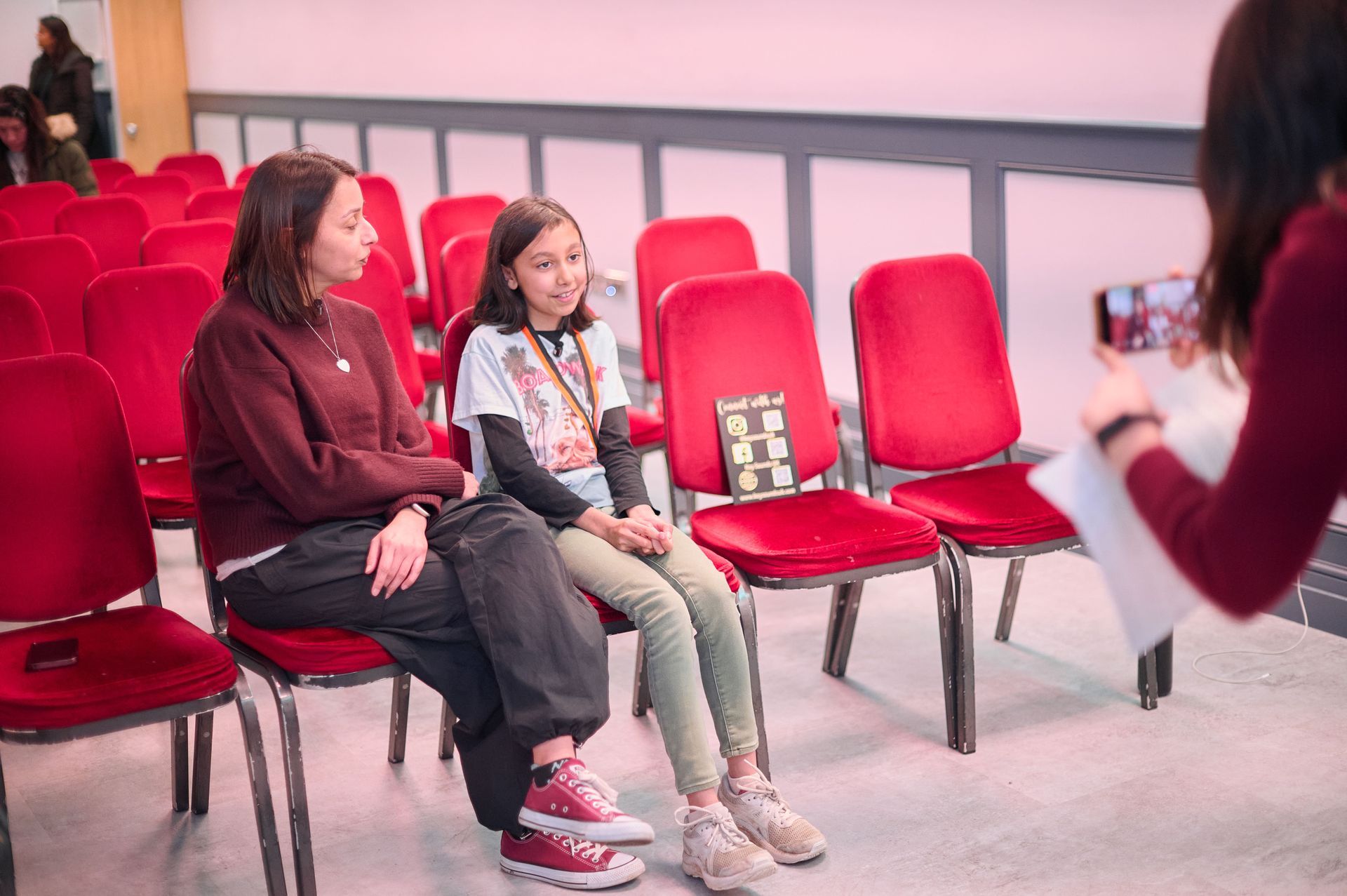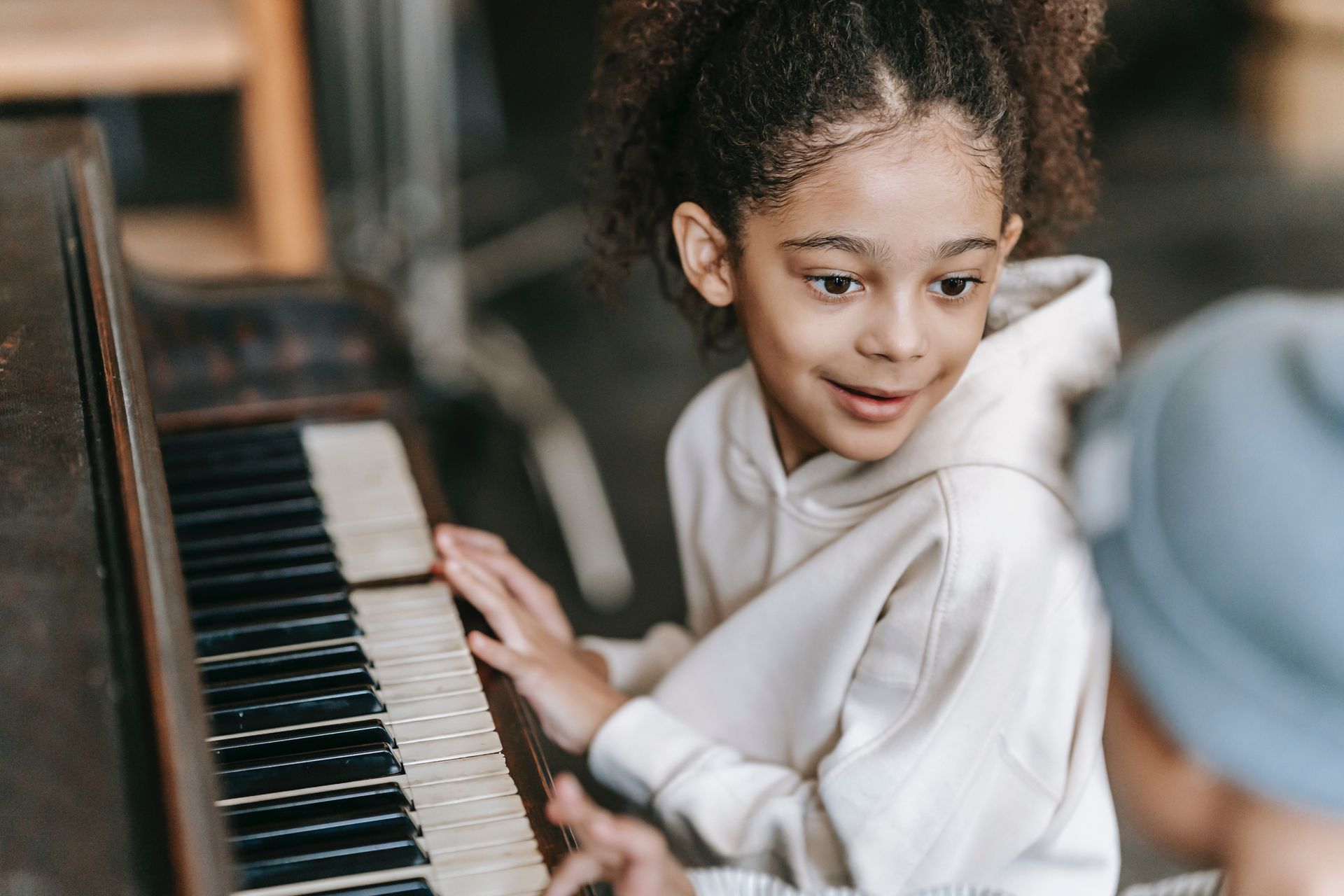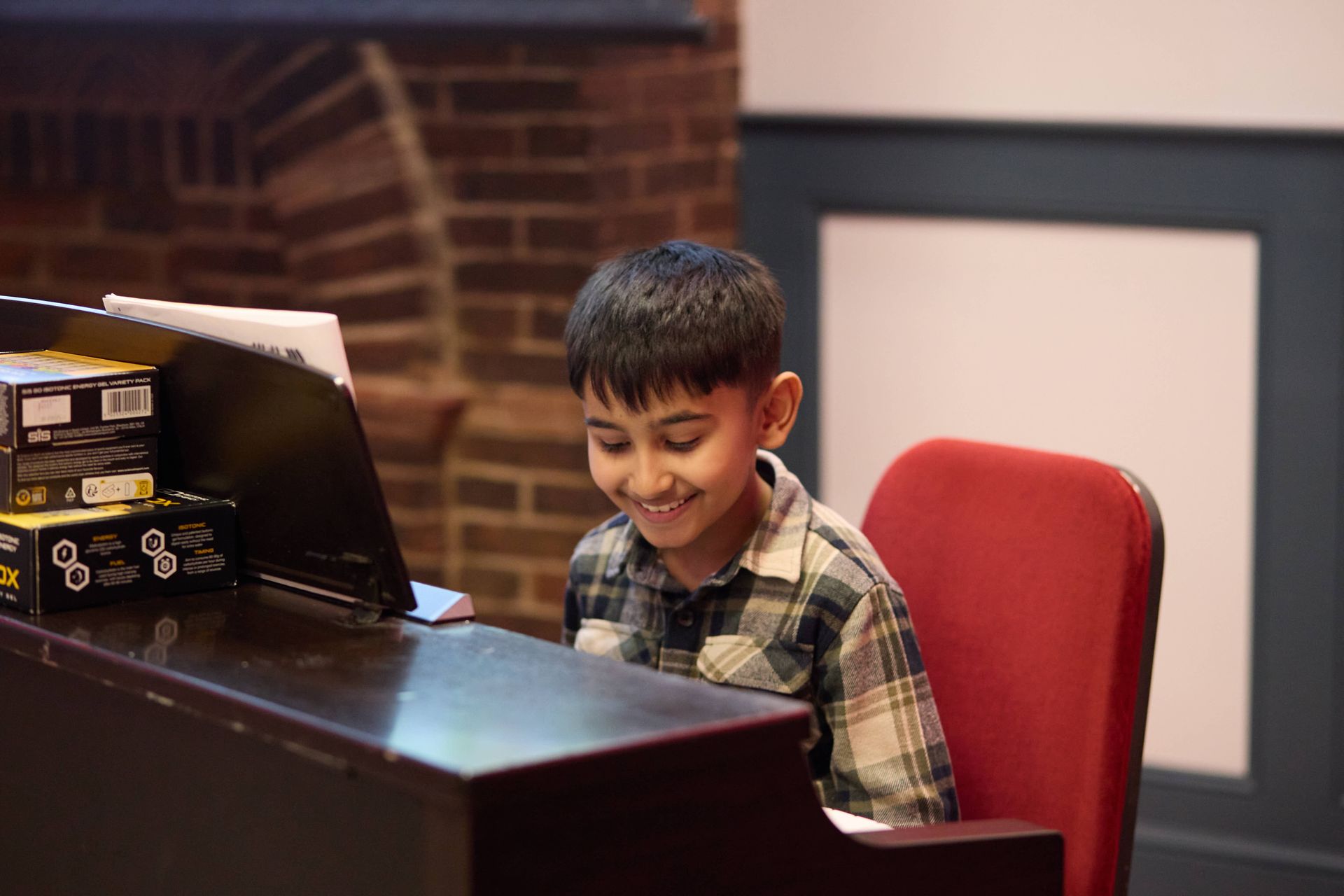Conquering Stage Fright: Performance Tips for Young Pianists
Stage fright is normal—but it doesn’t have to control you. With the right mindset and tools, you can turn nerves into confidence and truly enjoy performing.
1. Shift Your Mindset
Stage fright often comes from a fear of failure or judgment. Instead of thinking, What if I mess up?, try thinking, What if I have fun sharing music? You’re not being tested you’re telling a musical story.
Action Step: Before each performance, write down one thing you’re excited to share with the audience.
2. Practice Performing
Playing a piece well at home is different from performing under pressure. Simulate performance conditions often.
Action Step: Perform for family, record yourself, or set up a “mini concert” at home once a week to get used to performing with focus.
3. Use Visualization
Mentally rehearsing success can calm your nerves. Picture yourself walking on stage, sitting confidently, and playing with ease.
Action Step: Spend 5 minutes visualizing a successful performance each day leading up to an event.
4. Develop a Pre-Performance Routine
Having a ritual helps you feel in control. It could include deep breathing, stretching your hands, or silently reviewing your music.
Action Step: Create a 5-minute pre-performance routine and use it consistently before every practice performance or concert.
5. Accept Imperfection
Even professional pianists make mistakes. What matters is how you recover and keep going. One small error won’t ruin a performance - it’s your confidence that counts most.
Action Step: Practice continuing through mistakes during your run-throughs. If you slip, stay calm and keep playing.
Stage fright doesn’t mean you’re not ready - it means you care. Use that energy to fuel your focus and share your love for music. Every performance builds your strength.
Get in touch to find out more information here: www.keysoundsuk.com/contact



